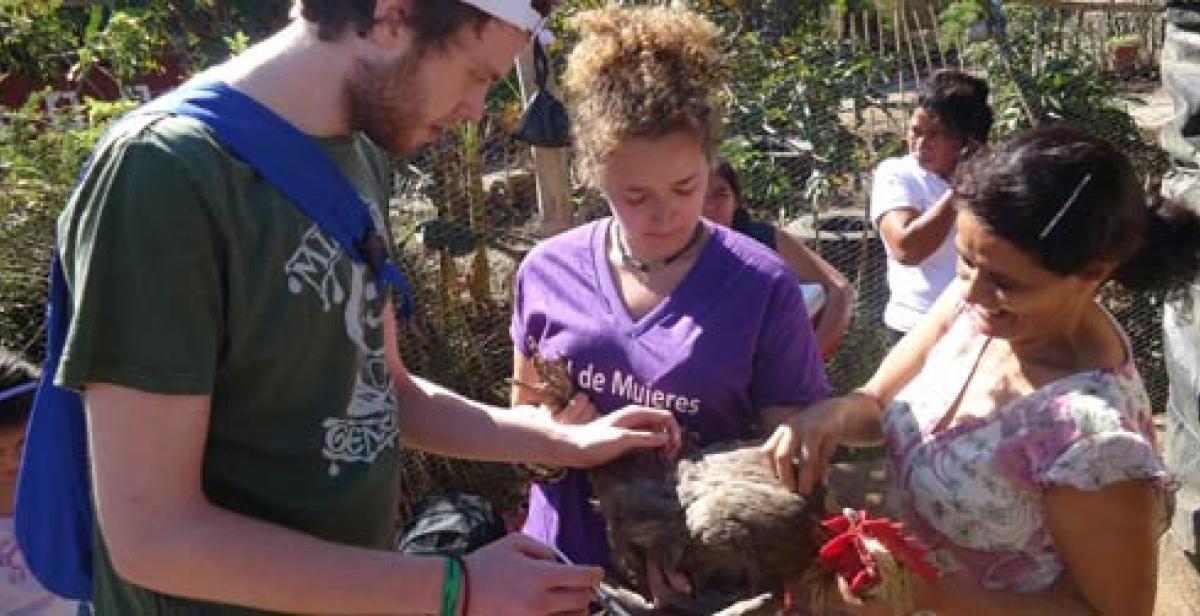Last Saturday we attended the beauty pageant of Ahuachapán. This is a yearly event and a big tradition here. It meant that we had the opportunity to observe and be a part of a local event. It went on for about four hours and there were many dance routines and dances dispersed throughout the proceedings. We all had a really good time and even agreed on who was eventually chosen as la Reina (The Queen).
Sunday 22nd January was the 80 year anniversary of the massacre of the indigenous people that happened in 1932. This was when the military murdered between 10,000 to 30,000 indigenous men and boys because they were rebelling against their lack of rights and land. This massacre happened in the region of Ahuachapán and we visited two towns where there were large killings, Nahuizalco and Tacuba. We visited both these places and witnessed their rituals to remember those who died. It was fascinating to see their local customs and also see a different culture from other areas of El Salvador.
This week we have had a lot of meetings with the organisations we will be working with so we can have a better understanding of their policies and the work they are doing. Amiga is a women’s organisation that works with IMU in a community called La Laguna. All of the women in the group were affected by the floods in some way as they live around a lagoon which overflowed during the 19 consecutive days of rain. We heard from the different women about their struggle and how they are still affected by the events four months on.
One woman called Reina had her house destroyed and all her belongings washed away. So currently her and her children are living with a neighbour, however the house they are living in has just been put up for sale. She is trying to re-build her house but does not have the economic means and also the land does not belong to her, so it creates more problems when trying to re-build. There are expected to be two to three more floods of a similar magnitude in the next rainy season so it makes it even more difficult for the women.
We had a meeting with the town council where we learnt from the various departments what they are doing to combat local issues and the success rates of these policies. For example, there is a sustainable agricultural programme which works within all 29 of the rural communities of Ahuachapán. This is helping local people have a better idea of sustainable agriculture. The council are also working within schools and so will be educating young people too.
Conjuve is a youth organisation that was started when the FMLN came into power a couple of years ago. They work with all the youth in the area and have had a really positive impact in the community. When we met them we learnt about what projects we will be getting involved with. We were so impressed by the work that they do that we are hoping to get involved with more activities there in our free time.
We spent Saturday morning vaccinating chickens with women from Amiga. We were all very anxious at first as none of us had ever had experience vaccinating chickens before but we soon got stuck in and by the end we were actually very efficient at it, given the slow start. That was definitely our highlight of the week, despite attending an amazing street party in the evening where we watched live Salsa and Cumbia bands. We are all really looking forward to getting stuck in to the rest of our projects next week.
ICS volunteer Tamara Short writes about her group's third week in El Salvador.
For more experiences of the ICS volunteers in El Salvador please see Dave Bull's blog



